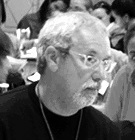 |
| Sam Piha |
Dr. Vandell appeared in our video on the Learning in Afterschool & Summer learning principles and our documentary on the History of Afterschool in America. She will also be sharing her thoughts in a plenary presentation, and a workshop alongside fellow researcher, Milbrey McLaughlin at the upcoming How Kids Learn VIII conference on December 6th, 2018 in Oakland, CA.
Q: You have been studying and researching afterschool programs for
 |
| Deborah Lowe Vandell |
A: For me, the most important lesson is that the quality of children’s daily experiences at programs is critically important. Research, my own and the research of others, has demonstrated repeatedly the central role of caring, supportive relationships with adult staff for children’s well-being as well as their academic and social competencies over time.
Lesson 1 is that the quality of staff-child relationships is front and center. Research also has shown that these supportive staff-child relationships typically occur in the context of activities that are engaging to young people and that build on the interests of the young people, a second important lesson. A third lesson, I think, is that we need to be doing more to support adult staff in their work. Staff training is critical as is planning time. Developing and retaining staff who have caring, supportive, and respectful relationships with young people is central as is staff who can provide rich opportunities for learning and engagement. Staff turnover is a big problem.
Q: Civic engagement and youth activism is an increasing part of afterschool youth programs. Can you comment on this trend as a part of positive youth development?
A: I just returned from a meeting that convened 250 researchers and practitioners who focused on this very issue. A recurrent theme across many presentations (by both researchers and practitioners) was the ways in which afterschool programs can foster civic engagement and youth activism. The connections between positive youth development, social-emotional learning (SEL), and character development were another recurrent theme. It is exciting for me to see connections being made across areas that are too often in separate silos.
 |
| Source: Jenniferbodford.com |
A: This is a BIG question. A critical first step is we have to specify effectiveness with respect to what end - effectiveness with respect to:
- Particular youth outcomes in the short-term or youth outcomes in the long-term;
- Access to high quality programs;
- Sustained participation or to daily attendance numbers; or
- The quality of children’s daily experiences at the program?
Q: Can you share what you are or will be studying in regards to afterschool?
A: I am in the midst of three afterschool projects right now:
I have been studying effects of afterschool programs and organized activities (their quality, duration, type) on adolescent outcomes at age 15 and the end of high school. My colleagues and I have now extended that work to ask if after school activities are linked to adult outcomes at age 26, including educational attainment, employment, civic engagement, physical and mental health, as well as positive social relationships. Results at age 15 and end-of-high-school are pointing to links between sustained participation and positive academic and social outcomes. Analyses of the age 26 data on 815 participants are underway.
My second project is a series of research syntheses. This project is a collaboration with Professor Sandra Simpkins at UC Irvine and a wonderful team of graduate students. One of the papers that we are working on examines conceptualizations of program quality and links between different aspects of program quality and youth outcomes. A second paper focuses on the challenges and opportunities of programs that serve Latino and African-American children and youth. In preparing the data base for these syntheses, we scanned more than 2000 papers and are focusing our analyses on 200 papers published since 2007.
The third project, is also in collaboration with Professor Simpkins. In this study, we are conducting secondary data analyses of two large data sets, the National Institute of Child Health and Youth Development (NICHD), Study of Early Child Care and Youth Development (SECCYD), and the Study of Promising Afterschool Programs with a focus on character development during childhood and adolescence. In this work, we are examining individual aspects of character such as persistence and work habits as well as inter-personal aspects of character such as prosocial behaviors and helping others.
Q: Any thoughts on what the future of afterschool will hold, either in regards to policy or practice?
A: I am of two minds about the future of afterschool. The good news is that there is now widespread recognition of the role that afterschool programs (and out-of-school time more broadly) play in children’s development and well-being. Many parents, educators, researchers, and policy makers now endorse investments in afterschool as necessary and important. This is very different than when I did my first study of afterschool programs in 1985!
The bad news is that there are still serious inequities in children’s access to high quality afterschool activities. Children from low-income families have less access than their more affluent classmates, and this lack of access is undermining their life opportunities. Relatedly, I worry that the funding for programs that serve low-income children remain precarious.
---------------------
Deborah Lowe Vandell, Ph.D., is the Founding Dean of the School of Education at the University of California, Irvine, where she is a Professor of Education and of Psychology and Social Behavior. The author of more than one hundred fifty articles and three books, Dr. Vandell studies the effects of afterschool and summer programs on children's academic, social, and behavioral development.





